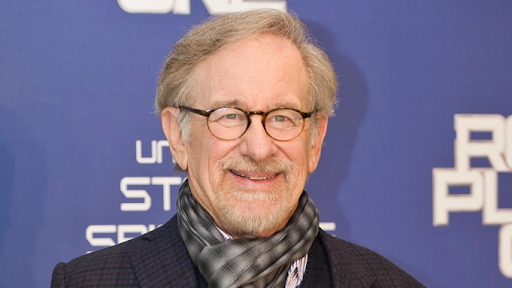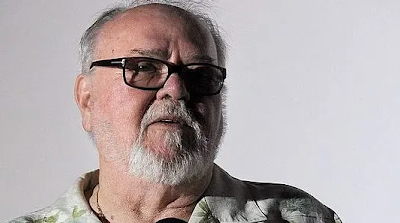Source: Deadline
The Academy Awards are seen by many as the highlight event of the year for the film industry, aired on television each year for millions to watch and find out which films and individuals are named the best of the best for that specific year. One might be perplexed as to why, however, if they were to take a look at the ratings the Oscars have gotten in recent years, with those previously mentioned millions reducing in numbers with the passage of time. Needless to say, the Academy of Motion Picture Arts and Sciences, the organization that puts together the Oscars each year, has become a bit desperate to stay relevant and get people to watch the show, especially as its relationship with ABC, the television network that has shown the ceremony for several decades now, becomes more strained as the ratings fall. This year alone has seen multiple attempts by the Academy to get people interested in watching the show, the most notable being the introduction of a Fan Favorite award that will be decided upon by those using specific hashtags on Twitter and the Academy website. However, it’s one recent decision, one that aims to more carefully manage the Oscars’ run time, that has resulted in many people – including prominent industry figures – speaking out in outrage. That decision: to cut specific awards from the televised show.
For the record, no awards are being completely removed altogether; each award that had been handed out at previous ceremonies will still be given as this year’s event. What will happen is that eight awards in particular, rather than being shown live as part of the overall event, will instead be filmed about an hour before the main event and shown during commercial breaks. The awards that will be shown in this format are the following: the Best Short Film categories (Animated, Documentary, and Live Action), Best Production Design, Best Film Editing, Best Makeup and Hairstyling, Best Sound, and Best Original Score. The remaining award categories are currently expected to be shown live as they have in previous years.
This decision has since resulted in a massive amount of backlash from people across the industry and social media, with many accusing the Academy of sacrificing the acknowledgement of key filmmaking processes for the sake of boosting ratings. Perhaps no industry figure to speak out against this action has such incomportable status as Steven Spielberg, the iconic director and producer behind such classics as “Jaws”, “E.T. The Extra-Terrestrial”, and “Saving Private Ryan”, and also one of the Academy’s Board of Governors. His most recent film, his cinematic adaptation of the beloved stage musical “West Side Story”, is one of the major contenders at the upcoming ceremony, having received a total of seven nominations. Two of those nominations – Best Production Design and Best Sound – are among those being designated to the commercial breaks, so it’s no surprise that, in an interview with Deadline following a screening of the film at the 20th Century Studios lot, Spielberg vented his frustrations over what the Academy is planning to do with some of the awards.
“I disagree with the decision made by the executive committee,” Spielberg states. “I feel very strongly that this is perhaps the most collaborative medium in the world. All of us make movies together, we become a family where one craft is just as indispensable as the next… I feel that at the Academy Awards there is no above the line, there is no below the line. All of us are on the same line bringing the best of us to tell the best stories we possibly can. And that means for me we should all have a seat at the supper table together live at 5.” As the interview continued, Spielberg cited the labors of those whom he worked with – those who may be rewarded with an Oscar but will not be shown receiving their award live on television – as a major factor in why he is so upset with the Academy’s decision. “When I look back and I think without John Williams, Jaws would wear dentures. With West Side Story, when Tony is singing ‘Tonight’ with Maria, without (Production Designer) Adam Stockhausen he would be singing it on a step-ladder and she would be on the scaffolding, all this on an empty soundstage. Without film editing all my movies would still be in dailies,” he says in the interview. “We all come together to make magic, and I am sad that we will all not be on live television watching magic happen together. Everybody will have their moment in the limelight. All the winners will be able to be shown with their acceptance speeches, but it’s the idea that we can’t all be there.”
As Spielberg is not alone in how upset he is with the Academy’s decision to cut awards and shorten the ceremony run time, there have been an overwhelming number of demands to reverse the decision and air the show as normal. Would Spielberg like to see this decision be reversed as well? “Yes I would, but I have tremendous respect for my fellow governors, and I have tremendous respect for [AMPAS President] David Rubin,” he answered in the interview. “The same thing came close to happening three years ago and at the eleventh hour a decision was made that reversed it and four categories that were in the commercial breaks were reinstated on the live show. I hope it’s reversed, but I’m not anticipating a reversal and I am not optimistic about it.” Rubin, meanwhile, remained optimistic when questioned about the Academy’s decision and whether or not it would be reversed any time soon. “I can’t imagine that we’re not going to deliver the Oscar experience that both the nominees and the audience have been wanting and are dreaming about,” Rubins assures. “We feel really good about this plan. It feels inclusive and respectful and celebratory.”
Will the Oscars be able to pull this off in a way that manages to appease those who are criticizing its most recent attempt at producing a more ratings-worthy show? Or will the Academy change its mind in a last-minute effort to save face? Nobody knows for sure, and nobody will know until the Oscars take place on Sunday, March 27. For the time being though, many would agree that the efforts to get more people on board with the Oscars may have only driven people further away.




